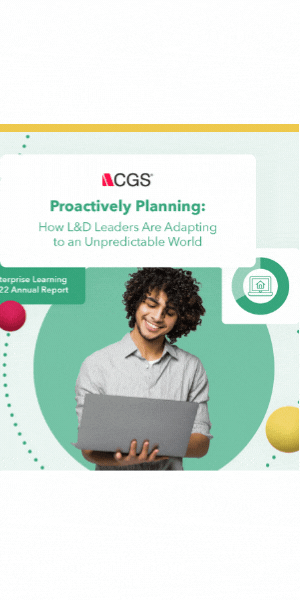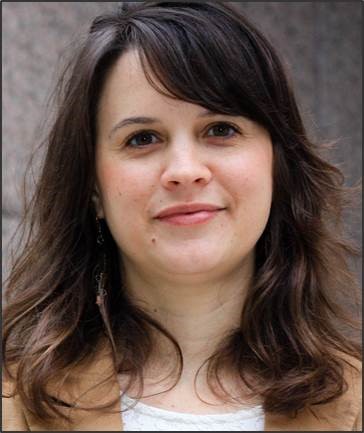
Currently a Strategic Initiatives Consultant for Humana Military, Jessica Farquhar Campbell has twenty years’ experience coaching and teaching in various settings, private and public, with individuals and groups. She has taught in the nation's top writing programs at Purdue and University of Louisville. A veteran yoga and mindfulness practitioner, she is fueled by her passions for personal growth and well-being. One of her first teaching roles was as a behavioral therapist for children with autism. As a graphic designer for the Air National Guard, she worked her way through undergraduate and graduate school, teaching and writing every step of the way. She holds a Master of Fine Arts in Creative Writing, "the new MBA," according to Fast Company, as innovation and creativity become priorities for businesses looking to thrive in the twenty-first century.
Topics
Managing VUCA: How Ready Are You?
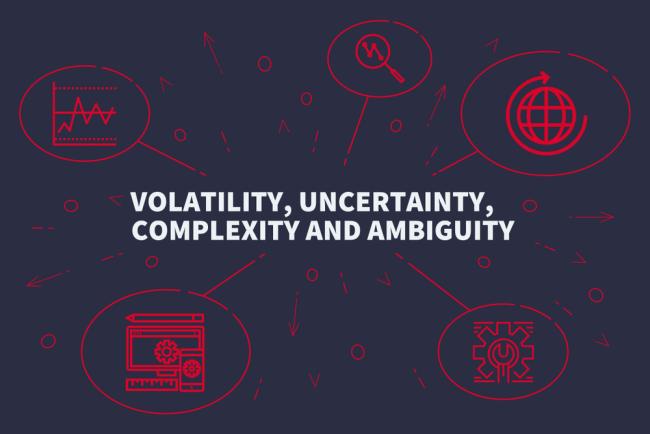
This article was originally written in 2018 and updated in May 2020 with new data in response to renewed interest on the topic of managing VUCA in the organization.
The 2020 CGS Enterprise Learning Trends Survey and Report tell us that only 38% of L&D leaders felt that they had programs in place to future-proof their businesses. We live in a VUCA world, we are told by psychology publications, business articles, and those who have the inventory to measure whether you are agile enough to withstand the Volatility, Uncertainty, Complexity, and Ambiguity. This is the new normal. Anyone still waiting for their surroundings to slow down, or calm down, is stuck in the past. And yet, there is a common feeling of unease among those of us who crave stability and predictability, two pretty reasonable and universally human needs. While the four dimensions of VUCA are distinct, they share something that makes most of us nervous – the element of the unknown.
How can we possibly prepare for the future when we have no idea what it holds? Corporate strategies change faster than we can write them down, vertical integrations are causing us to rethink how we define industries, and new digital technologies are making our value propositions obsolete. These are all things happening outside of us, in a metaphorical wilderness. How can we prepare to face this wild unknown?
ACKNOWLEDGE HOW MUCH IS OUT OF YOUR CONTROL
Many of us, when things feel out-of-control in one area of our life, we try to find something we can control, as implied in the phrase “future-proofing business.” As in, there must be some way to exert control over these things. Rather than future-proofing your business, have you thought about future-proofing yourself? As Erica Fox and Nate Boaz write in “Change Leader, Change Thyself,” “Organizations don’t change; people do.”2 The gist of the article is that leaders should look within to ignite change. Which is great advice as well as something that can be taught and measured in development programs. More and more, organizations are adopting mindfulness practices into their culture and leadership, and the results are well documented, from productivity improvements to healthier workforces.
Health insurer Aetna reports an approximate annual return of $3,000 per person on its Mindfulness at Work program. Compassion and empathy are less measurable but no less valuable outcomes of mindfulness practices, according to a review by Daphne M. Davis and Jeffrey A. Hayes of Pennsylvania University.3 To those charged with helping leaders cope with VUCA, have you considered training programs focused on mindfulness and the inner self? Knowing how to get grounded and stay present can help leaders feel more focused and prepared for an unknown future.
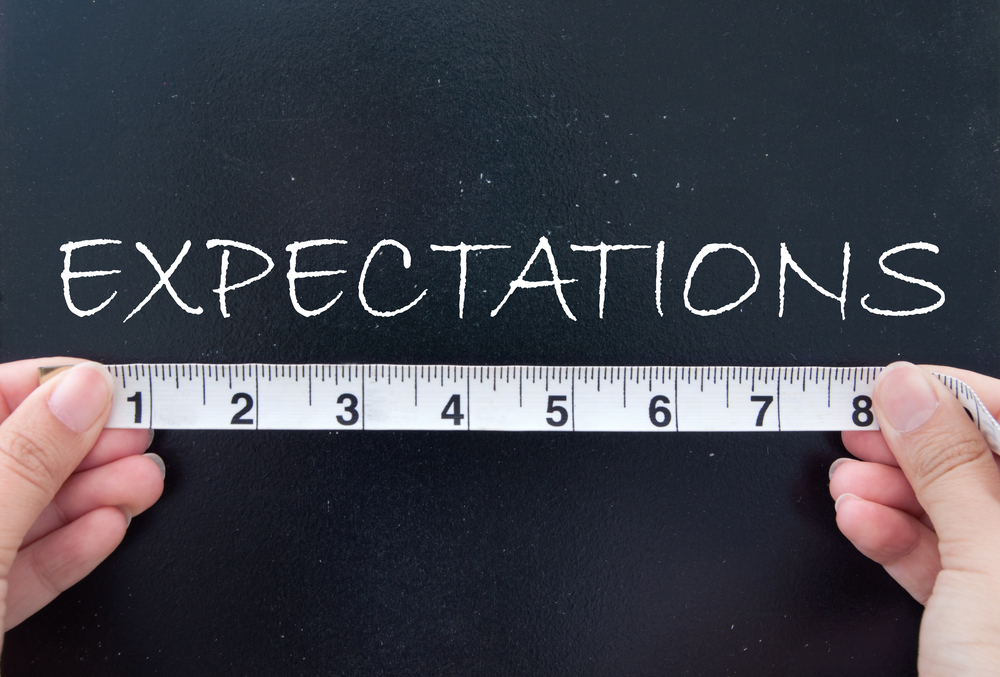
EXPAND YOUR EXPECTATIONS
Another way to prepare for the unknown is to imagine all the different ways an event might turn out. Or take the example of your workforce. Maybe at one time there was a very clear expectation of what “work” looked like. It was seated at a desk typing or working on the floor for eight hours plus a few breaks here and there. Now work looks very different. There is not just one or two ways that work is conducted. You might not have control over how, when, and where work gets done. I learned this mantra – Expand your expectations - when I was under the guidance of “Birthing from Within” author Pam England who wanted parents to know that birth and parenthood were not going to go as planned. So, think of all the ways it might unfold and stop labeling one good and one bad.
As you think about the future of your company now, knowing there are so many external circumstances you cannot control, how might you expand your expectations of what’s possible? If you currently think that there are good and bad ways to learn (whether you prefer classroom or virtual setting, for example), how might you exchange those labels for a more flexible mindset and be ok with your company’s and departments’ needs being different at different times? Listening to an HBR podcast recently, a lightbulb came on for me when one of the guests said that we are not trying to create a culture where everyone dresses down (i.e., let’s all jump on the Facebook train), but a culture where we are all ok with what others choose to wear. Some people are more comfortable in a suit and tie, and those of us who prefer jeans need to be accepting of them as we expect them to accept us! Light bulb! That’s what it means to expand expectations, y’all. In learning, that means more possibilities for what content is delivered, how, and by whom.
Stop idealizing and get realistic. Know that just because you are ready to run your leadership development program via social media posts doesn’t mean your leaders are ready for that delivery method. Know where your company is headed and be honest about where your people are on the journey. What are all the ways your future might unfold? And if your most hoped for thing doesn’t happen, what is the next best thing?
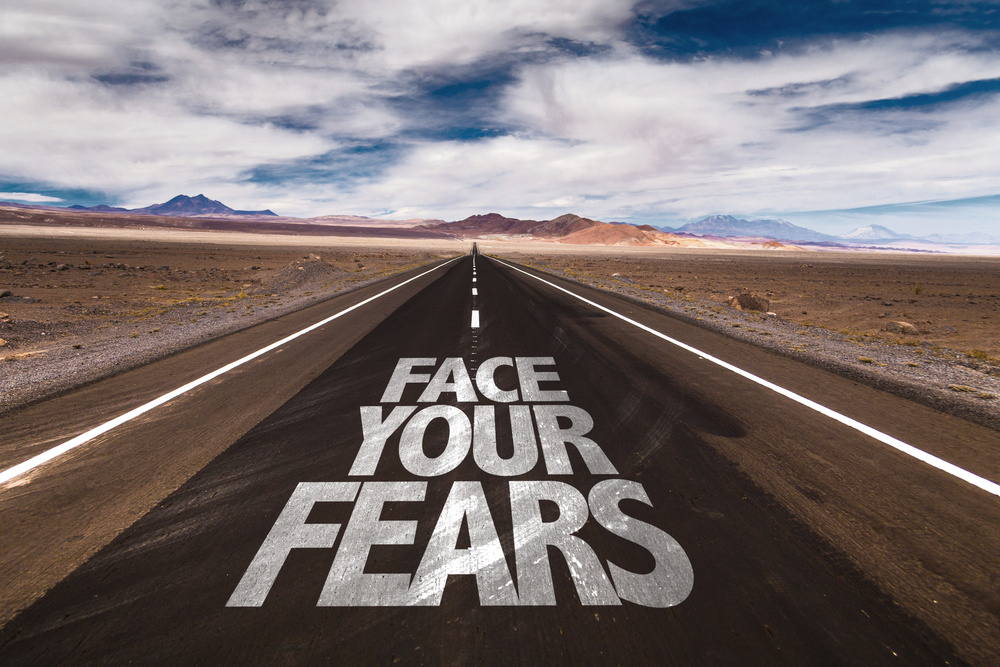
FACE YOUR FEARS
Do not ignore the scenarios that cause you the most anxiety. Go ahead and walk through those, too. What you will find is that you will be able to cope with those, too. And that is what it means to “look within.” You don’t have to endure hard times to tap into inner resources you didn’t know were there, although we can all relate to that experience, having seen someone come out stronger on the other side of adversity. Just thinking about hard times can change the way that we see risk. If you are afraid of having a remote workforce or deprioritizing traditional LMS as content models change, go ahead and ask yourself, why? In the name of risk management, you need to understand what is truly at stake.
CGS reports that the majority of the survey respondents (59%) seek outside help to scale their programs. What else are you already doing to future-proof your business? I bet you are readier than you realize.

Currently a Strategic Initiatives Consultant for Humana Military, Jessica Farquhar Campbell has twenty years’ experience coaching and teaching in various settings, private and public, with individuals and groups. She has taught in the nation's top writing programs at Purdue and University of Louisville. A veteran yoga and mindfulness practitioner, she is fueled by her passions for personal growth and well-being. One of her first teaching roles was as a behavioral therapist for children with autism. As a graphic designer for the Air National Guard, she worked her way through undergraduate and graduate school, teaching and writing every step of the way. She holds a Master of Fine Arts in Creative Writing, "the new MBA," according to Fast Company, as innovation and creativity become priorities for businesses looking to thrive in the twenty-first century.

